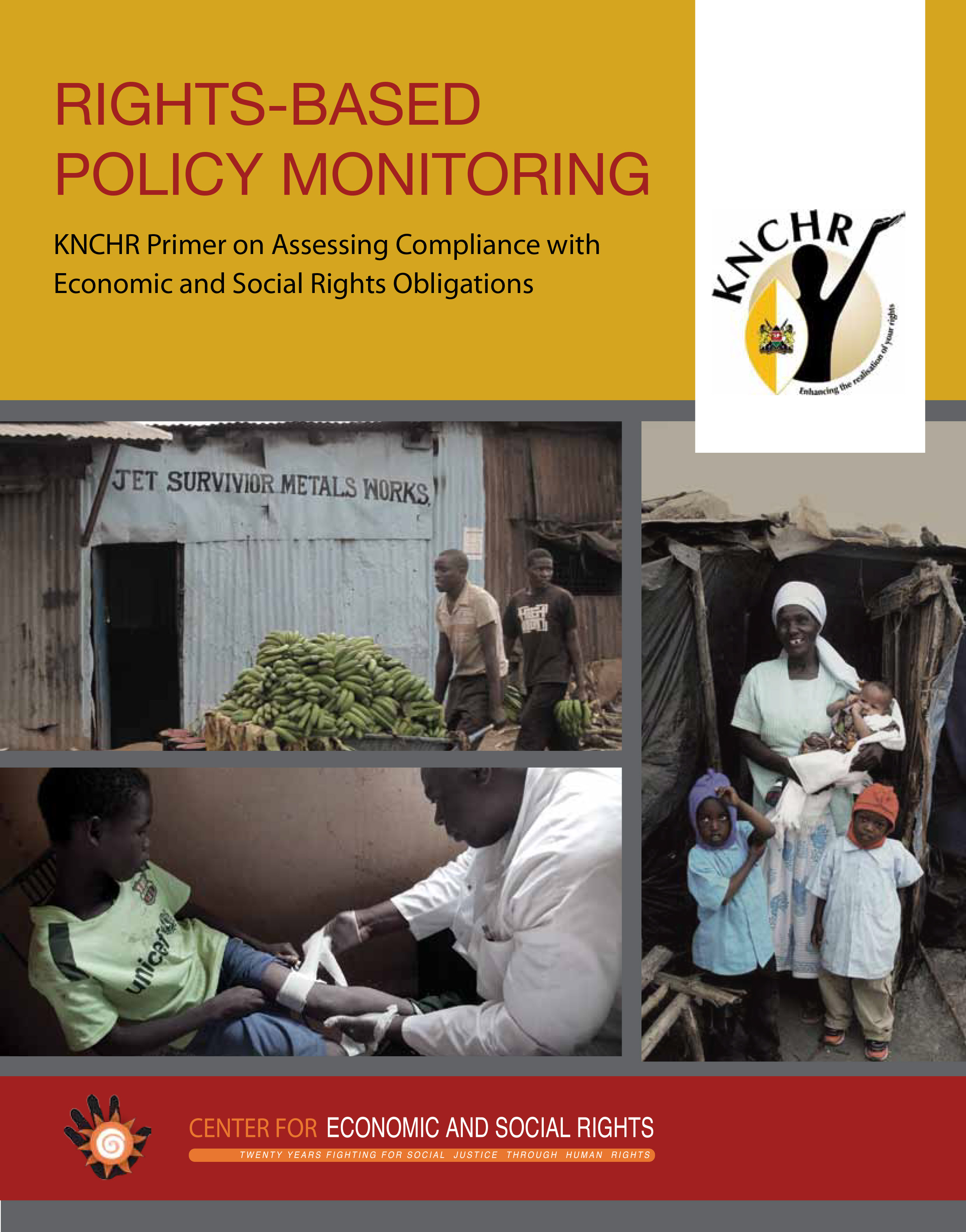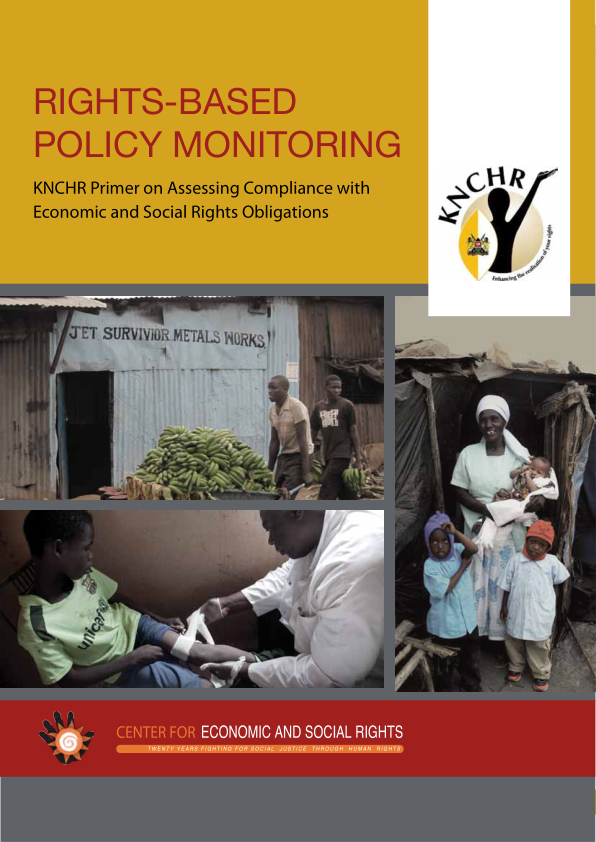 CESR and the Kenya National Commission for Human Rights (KNCHR) have produced a document to enable more effective monitoring of economic, social and cultural rights (ESCR) in the East African country. The document, which is the product of a partnership that began in early 2011, explores how ESCR, as enshrined in the country's Constitution, can inform a human rights-based approach to development.
CESR and the Kenya National Commission for Human Rights (KNCHR) have produced a document to enable more effective monitoring of economic, social and cultural rights (ESCR) in the East African country. The document, which is the product of a partnership that began in early 2011, explores how ESCR, as enshrined in the country's Constitution, can inform a human rights-based approach to development.
Kenya's 2010 Constitution enshrines ESCR and spells out clearly the actions expected of the government to progressively fulfill these rights. Much remains to be done if these provisions are to be meaningfully translated into improvements in the day-to-day lives of ordinary Kenyans, however. As the body mandated to monitor and advise on human rights compliance, KNCHR has a crucial role to play in ensuring the accountability gaps that allow widespread violations of ESCR to continue are closed as expeditiously as possible. The new primer is designed to support this work by explaining how tools and techniques such as rights-based budget analysis, can be used to assess compliance and, in turn, protect people's rights.
CESR's partnership with KNCHR is part of our work to ensure national human rights institutions (NHRIs) fulfill their potential as mechanisms for oversight and accountability on economic and social rights. It is our sincere hope that this publication will prove a valuable resource for staff at the Commission as they continue this important work.
